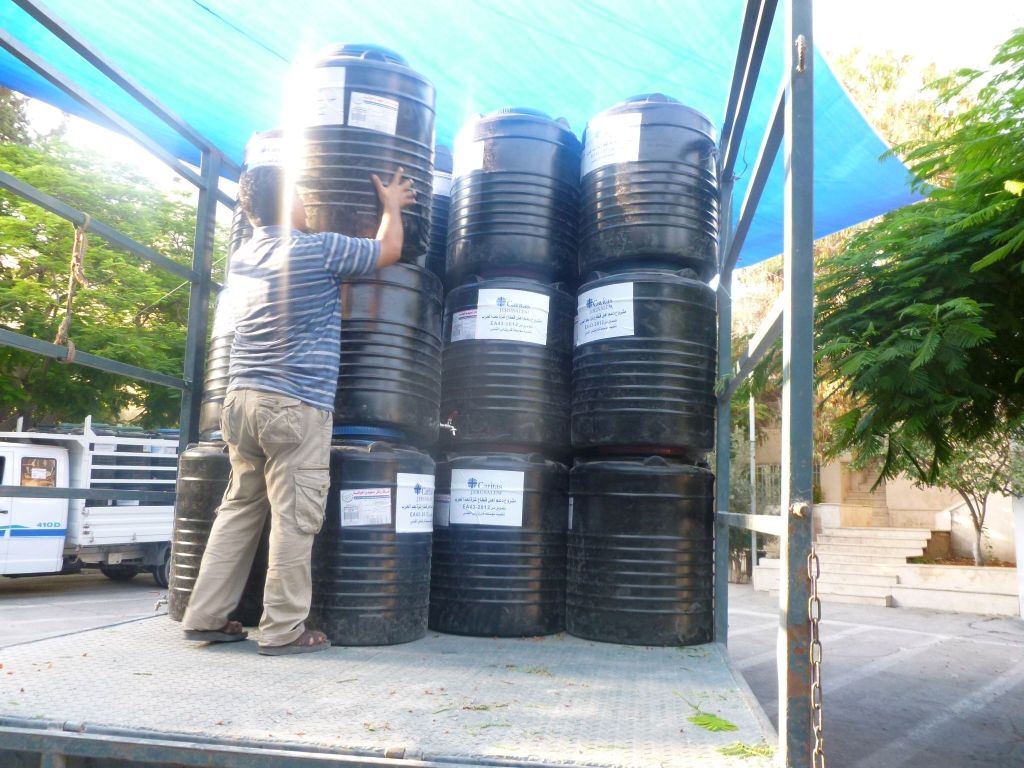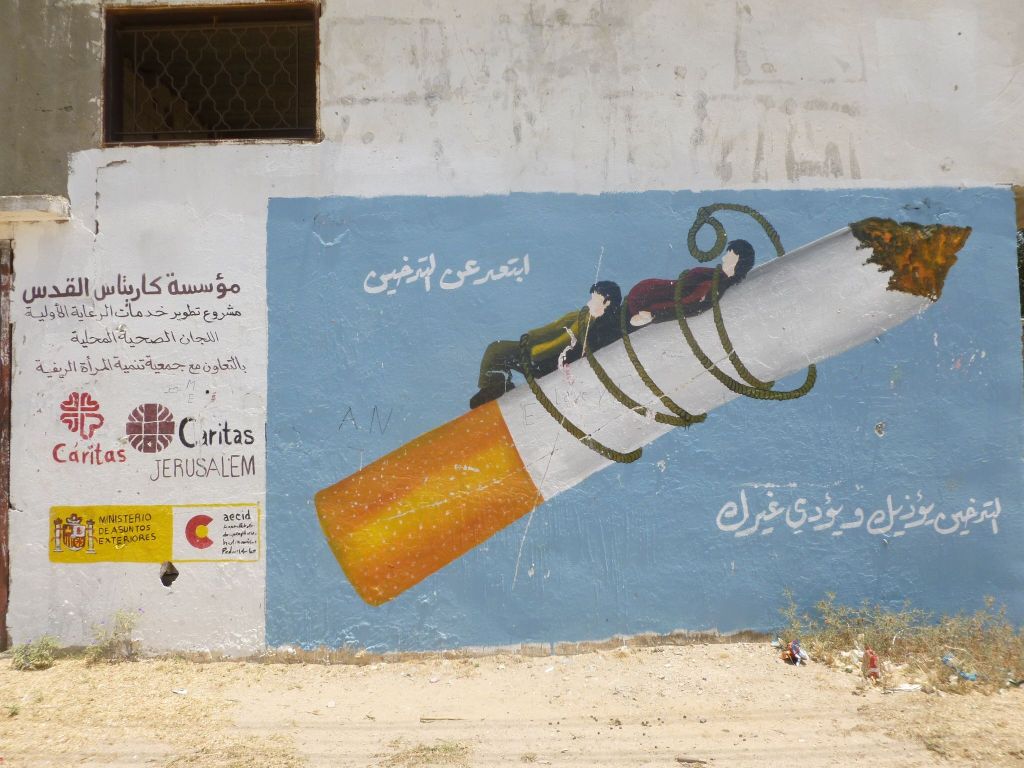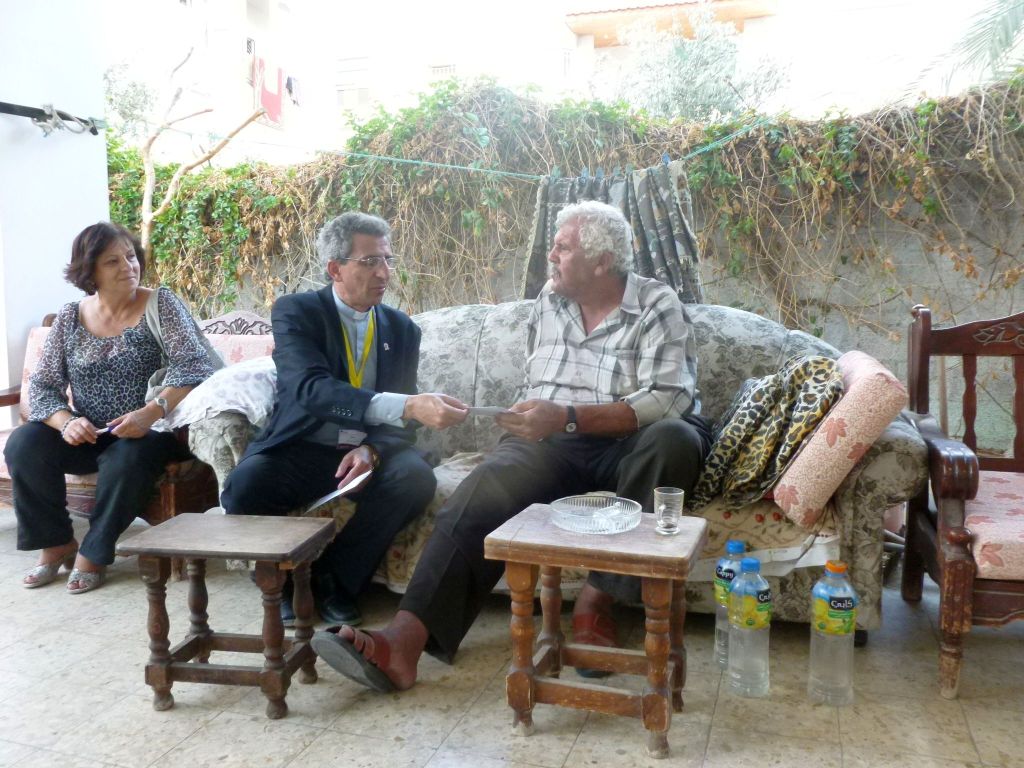By Harout Bedrossian, Communication Officer for Caritas Jerusalem
“I was shocked by the level of poverty,” said Fr. Raed Abusahlia, after his first visit to the Gaza Strip as the new director of Caritas Jerusalem. “The Strip continues to be an open-air prison, closed by the sea, the embargo of Israel and now Egypt.”
There are 1.7 million Palestinians living in Gaza, a thin strip of land along the Mediterranean, 41 km long and between 6 to 12 km wide. They have been blockaded by Israel since June 2007. A fifth live below the poverty line, according to the Palestinian Central Bureau of Statistics (PCBS).
Civilians in Gaza endured eight days of bombardment at the end of 2012, as the Israeli military launched an offensive against militants operating within the Strip. Caritas Internationalis launched an international appeal to support families affected by the war through the work of Caritas Jerusalem.
On 8 July, Fr. Raed and Caritas Jerusalem staff visited programmes and colleagues in Gaza and helped to bring in aid.
Their first visit was with Fr. Jorge Hernandez, the local parish priest, who updated them on the current social situation and what the Church does to help the needy. He also talked about his future plans for assisting the poor.

Caritas Jerusalem had been trying to get in the relief packages of milk, water, olive oil to families to Gaza for several weeks and unexpectedly, everything got there an hour after the team’s arrival.
Fr. Raed’s team then met with their 18 Caritas colleagues who work in the Caritas Medical Centre in Gaza City. These medics provided healthcare when the 2012 fighting stopped. The centre is located in Beach Camp, one of the most populous areas of the Gaza Strip and is near the Jabalia Refugee Camp.
Caritas offers primary healthcare and provides an integrated medical programme to the local community. The Caritas gynecologist is one of the few female practitioners in the Gaza Strip.The centre is also the base of a mobile medical team which provides service to the most marginalized communities. The mobile unit has operated since 2004 and visits Rafah, Amore, Imm Sadar, Magazi, Al Shati Camp and Breij Camp.
On top of medical care, Caritas teams in Gaza provide much needed psychological help. In particular, attention is given to the children who suffer the most from the conflict and the harsh living conditions. As well as therapeutic help, Caritas also provides leisure activities for children and young people.
Health facilities in Gaza are facing a serious shortage of 136 kinds of drugs and medical supplies, therefore the Caritas team visited the Ministry of Health and the Al-Ahli hospital which is ran by the Anglican Church and provided them with some of the most needed medicines.
The Caritas team also visited the Artificial Limbs and Polio Centre (ALPC), the only centre of its kind in Gaza that provides prosthetic and orthotic services. Caritas will finance 20 patients who lost a limb during the recent war, particularly children.
Caritas is a long time partner of ALPC, assisting the centre intensively after the Gaza war of 2009, when many people lost limbs and were injured in the terrible shelling which lasted for three weeks.
Caritas Jerusalem had been trying to get in the relief packages of milk, water, olive oil to families to Gaza for several weeks and unexpectedly, everything got there an hour after the team’s arrival on the first day. The team accompanied Caritas volunteers as they gave out food packages and small amounts of money to people who have lost everything.
“In that situation of daily suffering, the initiatives of Christians, their parishes and international agencies animated by them are an eloquent sign of witness and solidarity with all the people” said Fr Raed. “I wish we could do more to help the most vulnerable, because there is an urgent need for basic necessities.
“Getting a permit and entering Gaza is not an easy task, I dare say it requires courage. However, this will not be my first and last visit, but we will always return in the hope of alleviating some of the needs,” he said.
“I want to take this opportunity to thank all those who stood by us and supported us in giving a helping hand to their less fortunate brothers and sisters.”
Additional reporting Caritas Internationalis staff and Fides


